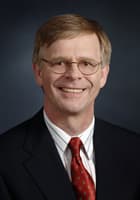University creates Project Mosaic to enhance social/behavioral science research

UNC Charlotte has established Project Mosaic, an initiative that will be led by Knight Foundation Distinguished Professor Jean-Claude Thill to enhance the University’s social and behavioral science research. The divisions of Academic Affairs and Research and Economic Development are funding the campus-wide effort, which will be housed in the College of Liberal Arts & Sciences.
Project Mosaic will support interdisciplinary teams centered on social and behavioral science research. Initially, the work will center on two themes: human and social capital, innovation and quality of life and metropolitan centers, world trade, transportation and communication.
“We have identified these areas as some of the most pressing in today’s world and as issues in which our faculty possess expertise and interest,” Thill said. “We will focus research around these topics, and we will bring together faculty who might not otherwise have been aware of each others’ expertise and work. Project Mosaic is designed to be an incubator for social and behavior science research and to strengthen the infrastructure social scientists need to conduct their research in the 21st century.”
Themes that are collaborative, data-intensive and cross-disciplinary in nature will be added as the project evolves. The project will include social and behavioral science investigators from across the University, including from the College of Liberal Arts & Sciences, College of Education, College of Health and Human Services and the Belk College of Business. Faculty from other colleges whose interests synergize with this initiative are welcome.
Project Mosaic is inspired by the National Science Foundation report “Rebuilding the Mosaic,” which identified the need for research in the social and behavioral sciences to be increasingly interdisciplinary, data-intensive and collaborative.
“Our faculty, our students and our communities will benefit from the knowledge and collaborations this effort will produce,” said Joan Lorden, provost and vice chancellor for academic affairs. “Almost all of the issues confronting the world today have a societal element. Dealing with these complex challenges requires a concentrated, cohesive approach that draws upon the combined research and scholarship of the social and behavioral science disciplines.”
Bob Wilhelm, vice chancellor for research and economic development, stated Project Mosaic will further the goal of advancing the quality, diversity and growth of research at UNC Charlotte.
“Through this effort, we will see research results that impact our social, cultural and economic communities,” Wilhelm said. “We know that research often cannot occur in isolation. We believe this research will be relevant to our local and global communities, and it will come about through teams drawing from their varied areas of expertise and knowledge.”
Nancy Gutierrez, dean of the College of Liberal Arts & Sciences, sees the initiative as a critical response to society’s needs for creative solutions. “Project Mosaic will draw together faculty from a range of disciplines and methodologies, whose different perspectives can result in innovative answers to complex problems. We also anticipate a positive impact on our graduate and undergraduate research programs, as students engage in this research with faculty.”
The first theme, human and social capital, innovation and quality of life, will focus on the interrelationships among education and learning, personal well-being and health and institutional interventions – such as policing and social services. It also will consider innovation and entrepreneurship and community contextual variables and the resulting social dynamics. Researchers could, for example, consider the influence of technology on learning and innovation, including the impact on people’s well-being and interactions in urban communities.
The research areas in these theme are ones in which the University has been invested throughout its history. Research in this area takes advantage of the connections built through the Urban Institute and the Institute for Social Capital, home to an integrated community database.
The second theme, metropolitan centers, world trade, transportation and communication, will focus on the measurement, longitudinal tracing and forecasting of trends pertaining to spaces framed by metropolitan centers at the continental and global scopes.
For example, one intriguing question may be to determine whether transportation and communication infrastructures more quickly influence cities’ growth and decline today than in the past, such as in the industrial age. This can help communities understand ways to avoid decline and spur growth. The researchers could consider whether a city’s political and economic standing affects livability and whether the size of a city affects productivity and how social networks organize.
Thill, who is leading Project Mosaic, is a faculty member in the Department of Geography and Earth Sciences in the College of Liberal Arts & Sciences. He is editor-in-chief of Computers, Environment and Urban Systems and the area editor-in-charge of Geographic Information Science of Networks and Spatial Economics, American editor of the International Journal of Society Systems Science and associate editor of Geographical Analysis.
In addition, Thill is president of the Regional Science Association International, and he is involved in the Center for Transportation Policy Studies as an assistant director; the Infrastructure, Design, Environment and Sustainability (IDEAS) Center as theme leader in sustainable infrastructure; and the Center for Applied GIScience.
The 2012 recipient of the Edward L. Ullman Award for Significant Contributions to Transportation Geography, awarded by the Association of American Geographers, Thill received the Hirotada Kohno Award for Outstanding Service of the Regional Science Association International in 2012. Since 2013, he is a fellow of the Regional Science Association International.
With the founding of Project Mosaic, UNC Charlotte joins the ranks of institutions with targeted efforts centered on social science research. These include Cornell University’s Institute for the Social Sciences and Center of Social and Economic Research, Penn State’s Social Science Research Institute, UNC-Chapel Hill’s Odum Institute and Duke University’s Social Science Research Institute.